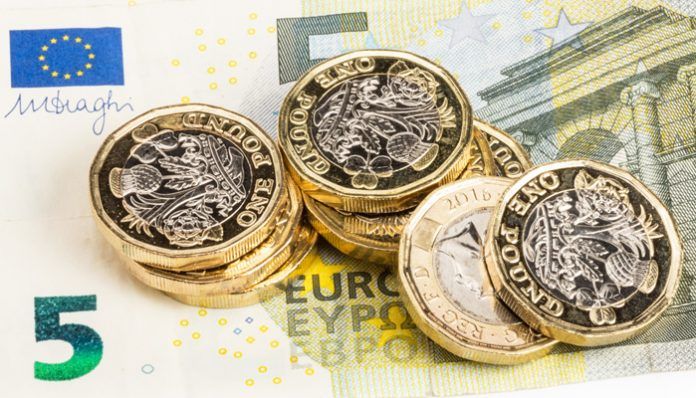FXOpen

The post-Brexit landscape has created an intriguing and somewhat unpredictable scenario in the currency market, particularly when it comes to the British Pound and the Euro. As mainland Europe navigates its trade relationship with an independent Britain, the Pound's recent fluctuations against its European counterpart have been garnering attention from investors and analysts alike.
Before the Brexit transition, Britain was an integral part of the European Union and its formidable trading bloc. However, it maintained its own sovereign currency, setting it apart from the Euro used by most EU member states. With the formal departure from the EU, Britain now enjoys greater autonomy in shaping its economic policies, unburdened by the need to consult extensively with the European Commission. This has also introduced an element of volatility into the currency market.
Britain’s interest rate policy is more aggressive than that of the European Union
A recent development that significantly impacted the Pound-Euro exchange rate was the Bank of England's decision to raise the base interest rate to 5.25%. While mainland Europe is also grappling with economic challenges and surging inflation, the European Central Bank's rate hikes have been comparatively more restrained. As a result, when the Bank of England announced its interest rate increase, the Euro experienced a sharp increase against the GBP, reaching a high of 0.8655, its second-highest point in a month. However, the Pound has since started to climb again, indicating a swift recovery from the temporary downturn.
It appears that investors have become somewhat accustomed to the Bank of England's successive interest rate hikes, as this latest increase marks the 13th consecutive rise since December 2021. A closer look at the historical context reveals that pre-2020, interest rates were kept artificially low, fostering a consumer credit-led society. Yet, with inflation surges over the past couple of years, a change in policy was inevitable, leading to the current interest rate of 5.25%. While this figure may seem high to some, it is worth noting that over the last 30 years, it has often been even higher.
What events will affect the market going forward?
Fortunately, the UK economy does not appear to be headed towards recessionary territory, as it was feared last year. Recessions have become the new red flag in the current economic climate, overshadowing the significance of interest rate rises. Consequently, the Pound's fluctuations against the Euro may centre around future interest rate announcements, resulting in brief downturns followed by subsequent upturns.
In light of Britain's robust economy and the newfound normalcy of interest rate increases, market volatility may persist around the timing of such announcements. Investors and traders should remain vigilant, as these small fluctuations can present both risks and opportunities.
As the tango between the British Pound and the Euro continues, the currency market remains a dynamic and complex stage where economic policies, inflation rates, and trade relationships all play critical roles in shaping exchange rate dynamics. Investors must brace themselves for occasional turbulence while acknowledging the resilient nature of the UK economy, which is likely to weather the uncertainties and continue its dance with the Euro on the global stage.
Trade over 50 forex markets 24 hours a day with FXOpen. Take advantage of low commissions, deep liquidity, and spreads from 0.0 pips. Open your FXOpen account now or learn more about trading forex with FXOpen.
This article represents the opinion of the Companies operating under the FXOpen brand only. It is not to be construed as an offer, solicitation, or recommendation with respect to products and services provided by the Companies operating under the FXOpen brand, nor is it to be considered financial advice.
Stay ahead of the market!
Subscribe now to our mailing list and receive the latest market news and insights delivered directly to your inbox.








